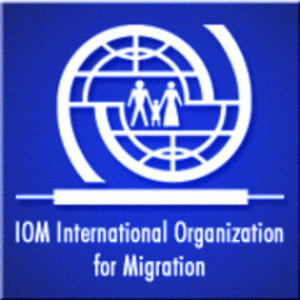Effective migration governance needed for effective labour mobility – IOM
 Ghana needs to create a conducive environment with good migration governance to attain the advantages of labour mobility for its development.Ms Sylvia Lopez-Ekra, Head of Mission, International Organisation on Migration (IOM) Ghana, said to achieve this the IOM is supporting Ghana in its efforts to adopt a national labour migration policy.
Ghana needs to create a conducive environment with good migration governance to attain the advantages of labour mobility for its development.Ms Sylvia Lopez-Ekra, Head of Mission, International Organisation on Migration (IOM) Ghana, said to achieve this the IOM is supporting Ghana in its efforts to adopt a national labour migration policy.
She said once the policy is in place, public employment services would play a critical role in its operationalization.
It would also look at critical issues of skills, qualifications, migrant workers protection, social security, preparing migrants before they leave and most importantly closing loopholes for unscrupulous intermediaries.
She was speaking at a day’s forum organised by the Ministry of Employment and Labour Relations on International Professional Labour Mobility.
The event was held under the theme: “Promoting International Professional Labour Mobility for decent Jobs: The role of the Ghana Public Employment Service’’.
Ms Lopez-Ekra said migration to the Middle East is fairly new trend for countries like Ghana and bilateral labour agreements are effective ways to manage these mobility corridors- as Ghana recently signed such an agreement with Qatar.
She said cross-border labour and skills mobility is critical for the development of the African continent as well as for regional integration.
Ms Lopez-Ekra said contrary to popular perceptions many African migrants move within the African continent but not much is being done to harness the potential benefits of the mobility.
“Regional skills pooling enabled through well managed labour mobility can help to address this challenge and incentivized workers to move where they are most productive and needed,’ she added.
Ms Lopez-Ekra said a key aspect of harnessing the potential of the youth is to ensure that they are productive and have access to employment adding that “it therefore imperative to facilitate safe and regular means for youths who are seeking to work abroad, especially in a context where youth employment, the dominance of informal employment as well as un-and under-employment continue to create strong push factors for migration”.
Ms Lopez-Ekra said “many migrants are empowered by migration, creating new and better lives for themselves and their families and contributing to the development of their communities of origin through financial and social remittances”.
She said in 2015, migrants sent back over $600 billion in remittances – and that amount that is three times larger than the official development assistance.
She said Ghana received about $3.8 billion in formal remittances in 2018, making it the second largest recipient of remittances in the sub-Saharan region after Nigeria.
Prof Mariama Awumbila, the former Director of Centre for Migration Studies (CMS), University of Ghana, Legon, said labour migration has a lot of potential for Ghana’s development and the forum was to brainstorm and see how best to harness the positive aspect of migration is in the right direction.
She said migration has always been used as a livelihood strategy in Africa and that one of the key drivers of migration is for economic reasons, hence the need to harness its economic potentials to facilitate development of Africa.
Prof Joseph Teye, Director for CMS, presenting on “Labour Mobility/Migration in the Contemporary World”, said economic factors including unemployment were major drivers of migration and called for equal distribution of infrastructure to bridge the disparity.
Source: GNA
